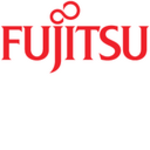What is most valuable?
Ease of use is a valuable feature. In our case, we had multi-versions of FlexPod. We connected an additional storage app. Connecting to any type of storage would have been pretty challenging with another type of system. However, with this solution, it was fairly easy.
The connection to the server more-or-less updated the firmware version on it, made sure that it worked, rebooted, and then it booted up a second system. It was very simple to add additional storage.
Upgrading the operating system version wasn't as much as a pain as I'd expected. It was a pleasant surprise. With other companies out there, you have to jump through hoops to get your SAN controller or app storage upgraded, or do many types of operations where you potentially have downtime. We had zero downtime.
We didn't have to take down a single server, didn't have to take apart anything, and didn't have to do anything else. It was just a matter of connecting a couple of cables in the back, upgrading the firmware, and then upgrading the SAN controller.
How has it helped my organization?
It benefits the organization in that we had no downtime. In almost five years of operation, we have never had a single hour of downtime that was directly related to a storage problem. There weren't things like hard drive failures.
In any other company, it would have legitimately been an issue for us to get a hard drive out. But usually it involves some sort of extreme discussion with customer service agents about how important this is to our business operation, and there was none of that with NetApp. They adhered to the SLA.
I was willing to wait if the guy was willing to reset the hard drive. And that's more-or-less what happened. I had a failure, and within two hours of the notification of the failure, I had a new hard drive in my hands on-site. That's pretty impressive, regardless of how you put it.
What needs improvement?
I would like to see, perhaps, an interface that's a little more intuitive than the existing one. I think that goes to being more familiarity with other systems. I came from an ICE environment, and it sets you in your ways mentality.
When it comes to NetApp, you have to forget about some of the things you've done in the past, in order to kind of get yourself past it.
I wish that the interface was perhaps a little more cognizant. There are people coming from environments where ease of use isn't quite there. It almost sounds terrible, but I think that they could probably make everything a little bit easier to use, where the interface was maybe just a hair bit easier to understand and comprehend exactly where you are in the steps. But, again, you're talking to somebody who may be coming at it from being brand new to a storage environment.
What do I think about the stability of the solution?
There has not been any downtime. There's never been a downtime directly related to storage environment issue. Anything else was outside the storage environment, so it was typically another company's issue. It was never directly related to NetApp.
What do I think about the scalability of the solution?
In terms of scalability, we've added/matched two additional shelves of storage with very little fanfare. There were no major problems. It was just a matter of upgrading an old SAN controller software, and that was it.
How is customer service and technical support?
I haven't had to use the technical support much, but my interaction with them has always been very positive and they definitely know their information.
Which other solutions did I evaluate?
We evaluated HPE, LeftHand before HPE bought them out, and then they became HPE LeftHand.We've also looked at EMC. We've also recently considered HPE MSA technology, and their EEA technology, as well.
We looked HPE 3PAR, before they were HPE. We've looked at pretty much all the big storage vendors out there, such as Tintri and Nimble, but they are more bundled storage and compute.
We decided to stay with NetApp because I'm familiar with their systems. We're already a NetApp customer. So there's a certain investment in time and knowledge with NetApp that we have. We don't want to go back to reinventing the wheel every time we look at storage. We are happy with the product solution.
What other advice do I have?
It's not all about cost. Overwhelmingly, the issue is that you shouldn't be as concerned with cost as much as you should with the scalability and the ability of a system. Even though you may be looking at a product that's more expensive than other equivalents out there, you're probably getting one of the best customer experiences out there, bar none.
I've had to use HPE support, and I've had to use NetApp support, and 100% of the time, I would wind up referring NetApp support overwhelmingly.
When you're looking at everything, it's not all about cost. It's also about usability, scalability, and performance. With all those applications, I've never once had issues with any type of performance, or had scalability problems with NetApp.
The only times we had downtime with our server/storage environment was because of SAN switching issues. One issue was related to a software upgrade on our SAN switches, the other was misconfigured zoning on the SAN switching environment. In both cases, it was human error and not system-intrinsic error that caused our downtime.
Disclosure: PeerSpot contacted the reviewer to collect the review and to validate authenticity. The reviewer was referred by the vendor, but the review is not subject to editing or approval by the vendor.








